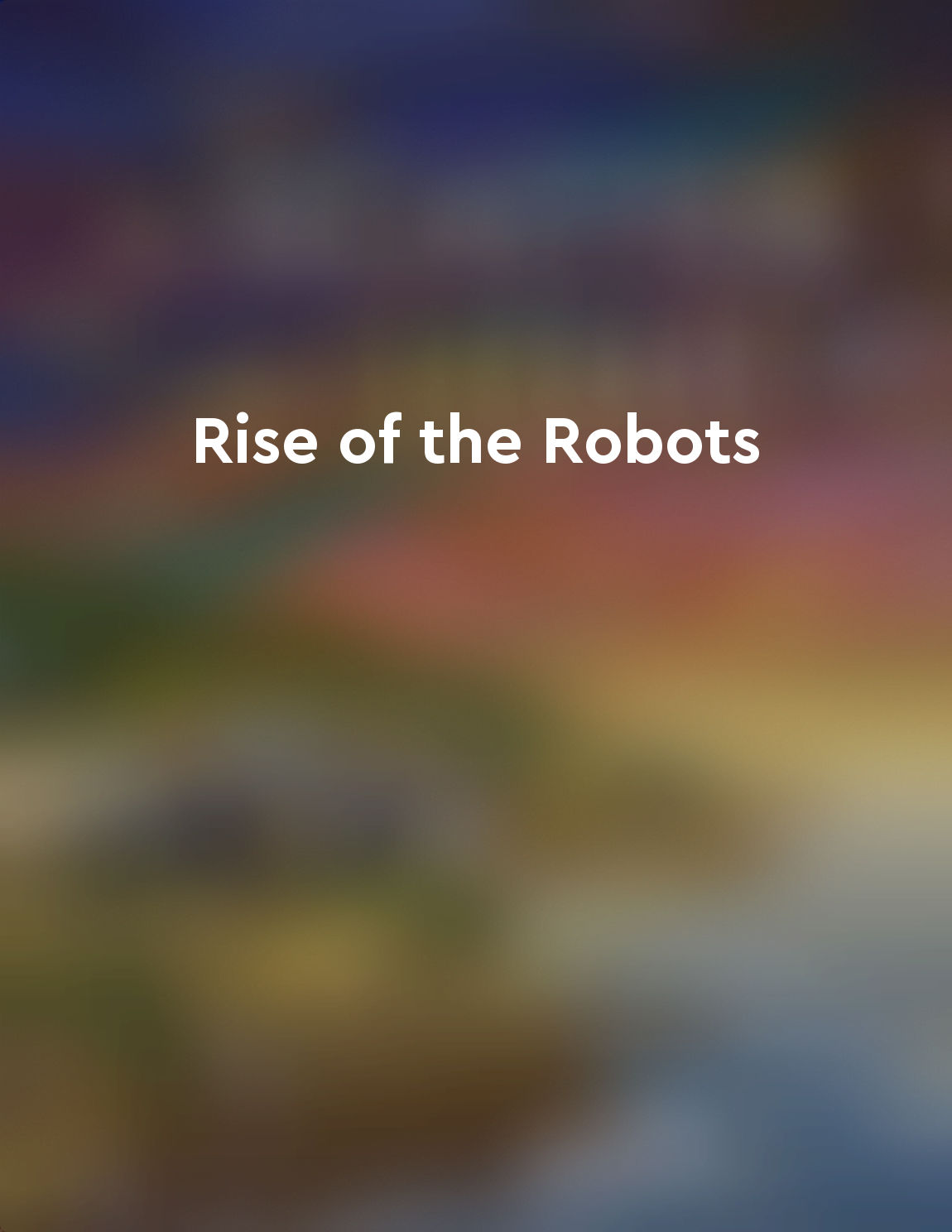The impact of automation on employment is a pressing issue that needs to be addressed from "summary" of Rise of the Robots by
The rapid advancement of technology and the rise of automation have brought about significant changes in the workforce. As machines become more sophisticated and capable of performing a wide range of tasks, many jobs that were once done by humans are now being automated. This shift has raised concerns about the impact of automation on employment and the future of work. One of the key issues at the heart of this debate is the potential for automation to eliminate a large number of jobs across various industries. As machines become more efficient and cost-effective than human workers, businesses have a strong incentive to replace workers with automation. This trend has already been observed in sectors such as manufacturing, retail, and customer service, where robots and algorithms are increasingly taking over tasks that were previously done by humans. The displacement of workers due to automation poses a significant challenge for society. Not only does it threaten the livelihoods of millions of workers, but it also raises questions about income inequality and social instability. As more jobs become automated, there is a growing concern that a large segment of the population may be left without employment opportunities, leading to economic hardship and social unrest. Moreover, the impact of automation on employment is not limited to job loss. Automation also has the potential to change the nature of work itself. As routine tasks are automated, workers may need to acquire new skills and adapt to new ways of working in order to remain competitive in the labor market. This shift towards a more automated workforce requires a reevaluation of education and training programs to ensure that workers are equipped to thrive in a rapidly changing economy. In order to address the challenges posed by automation, policymakers, businesses, and society as a whole need to come together to develop strategies that promote inclusive growth and ensure that the benefits of automation are shared equitably. This may involve implementing policies that support workers who are displaced by automation, investing in education and training programs that help workers develop the skills needed for the jobs of the future, and fostering a culture of innovation that encourages the responsible use of automation technology.- The impact of automation on employment is a complex and multifaceted issue that requires careful consideration and proactive measures to address. By acknowledging the challenges posed by automation and working together to find solutions, we can create a future where automation enhances productivity and innovation while also supporting the well-being of workers and society as a whole.


